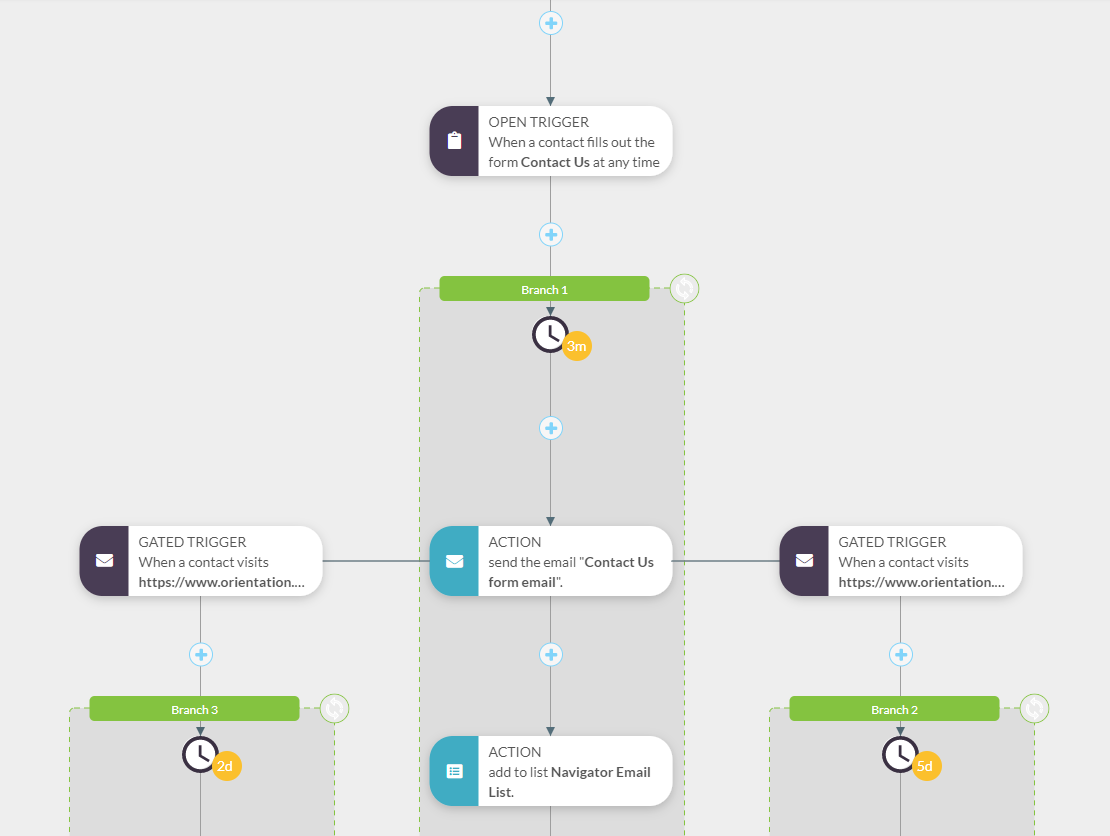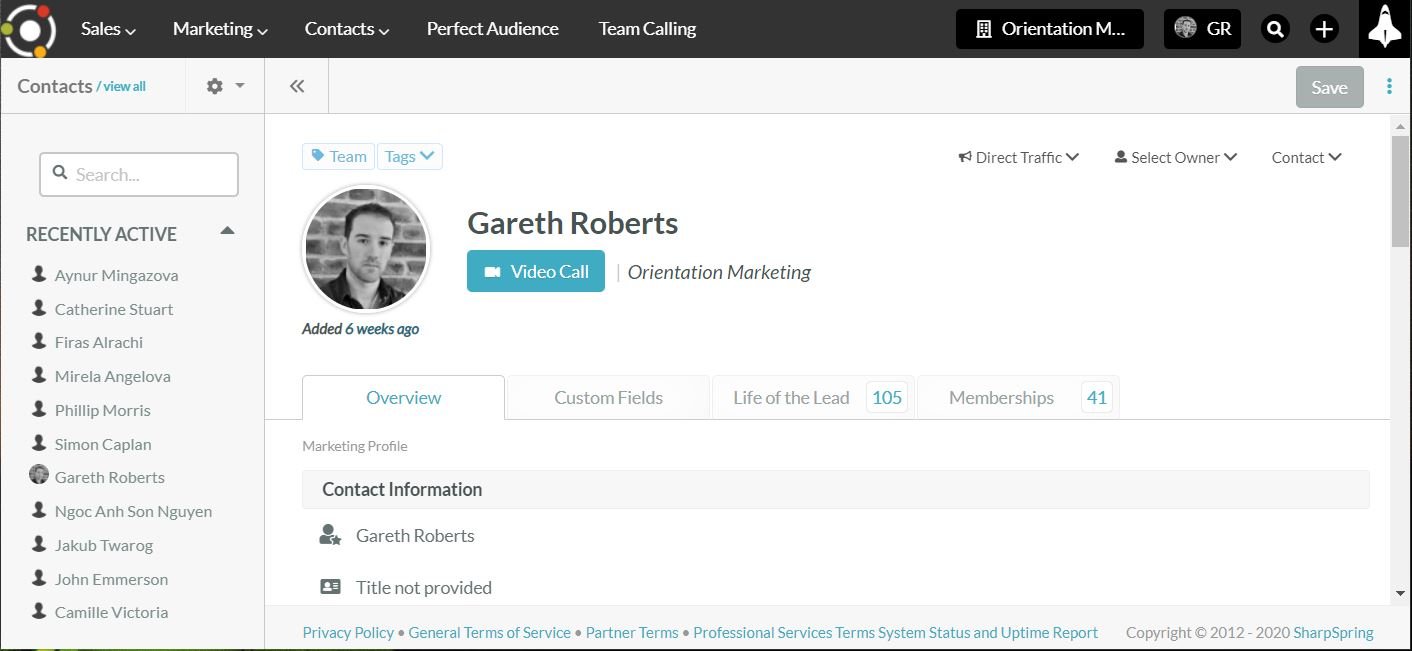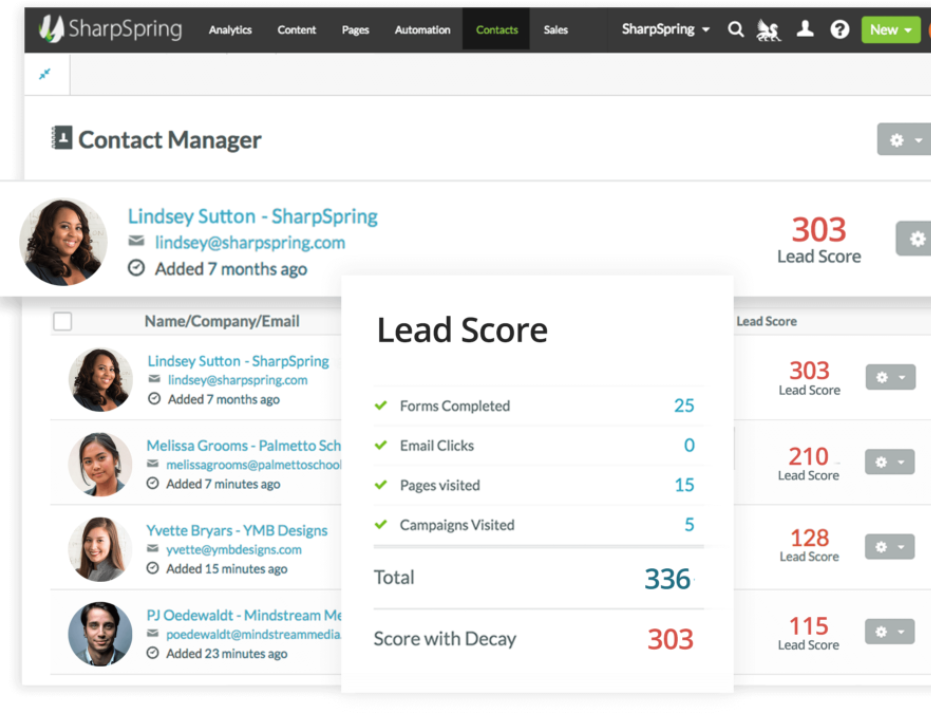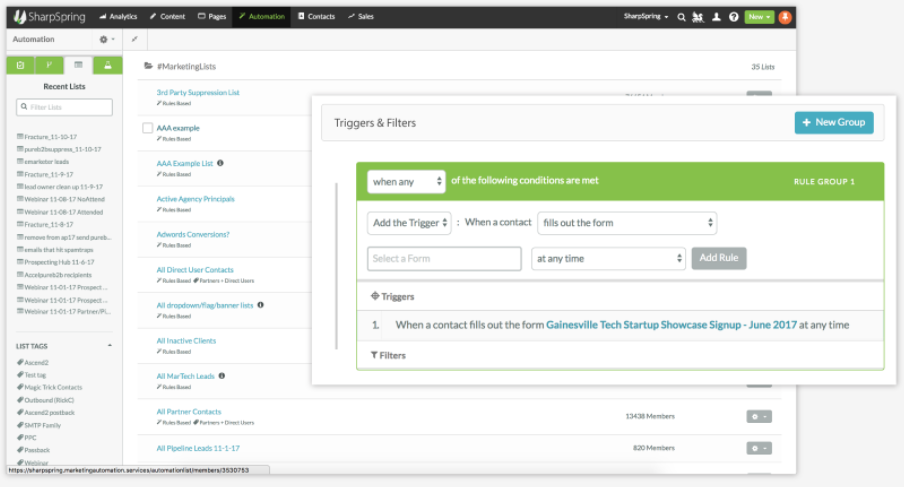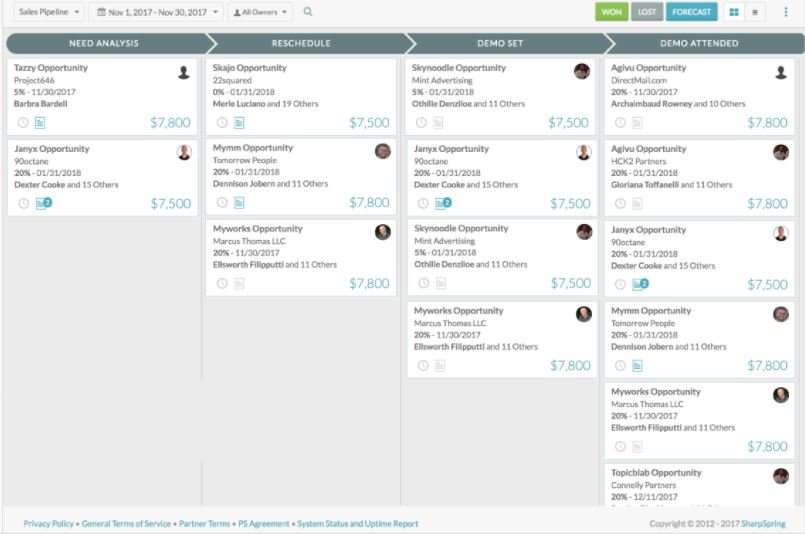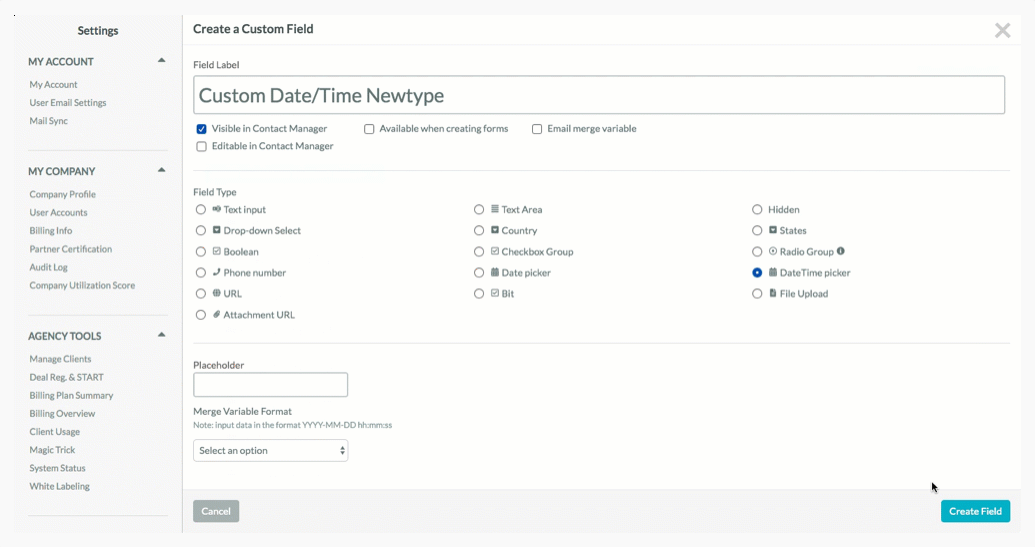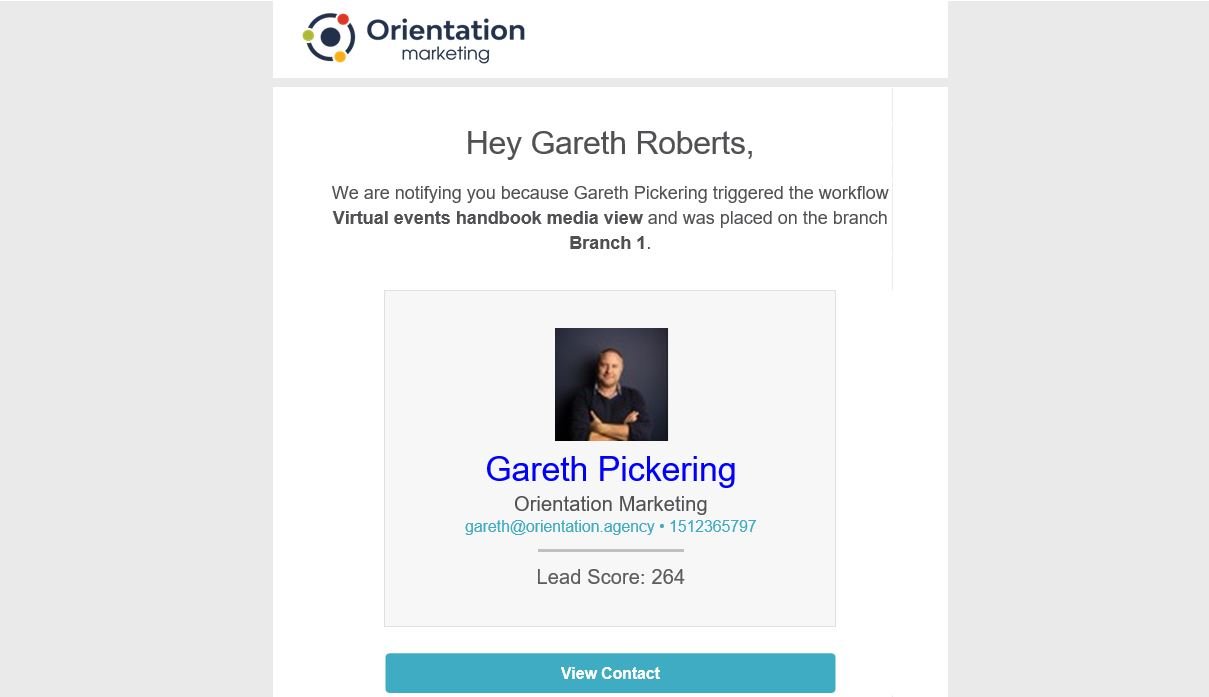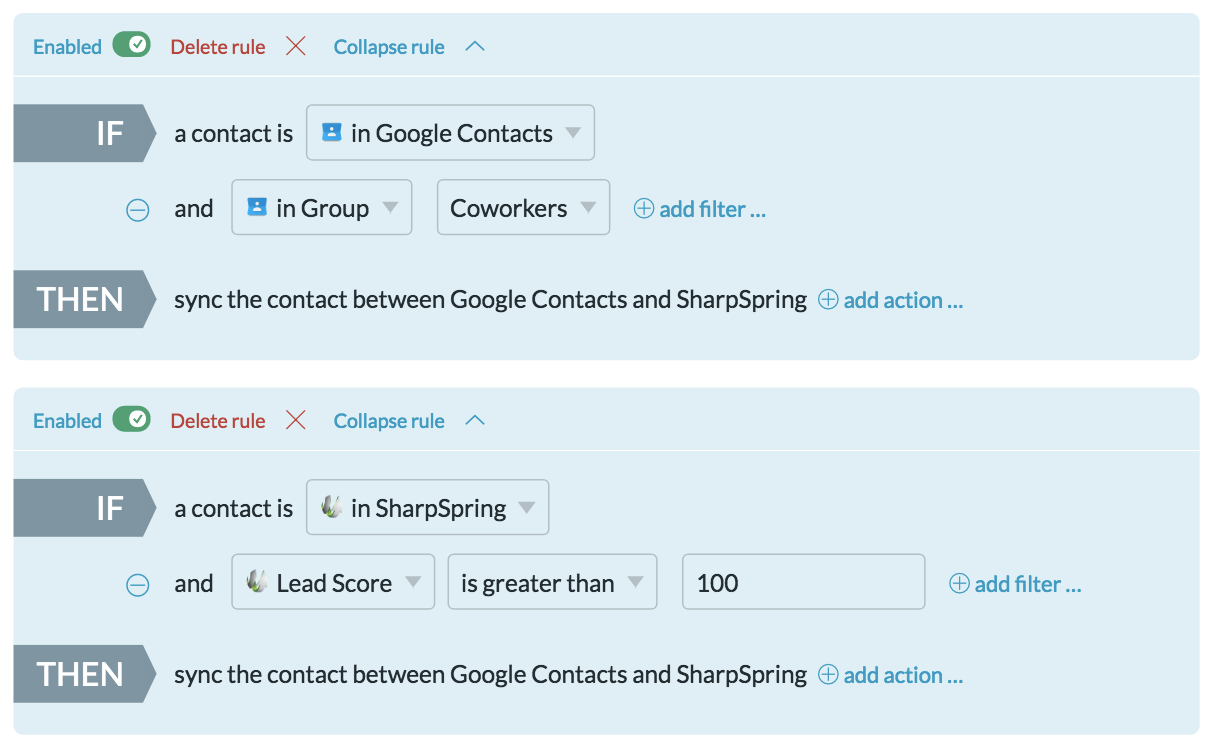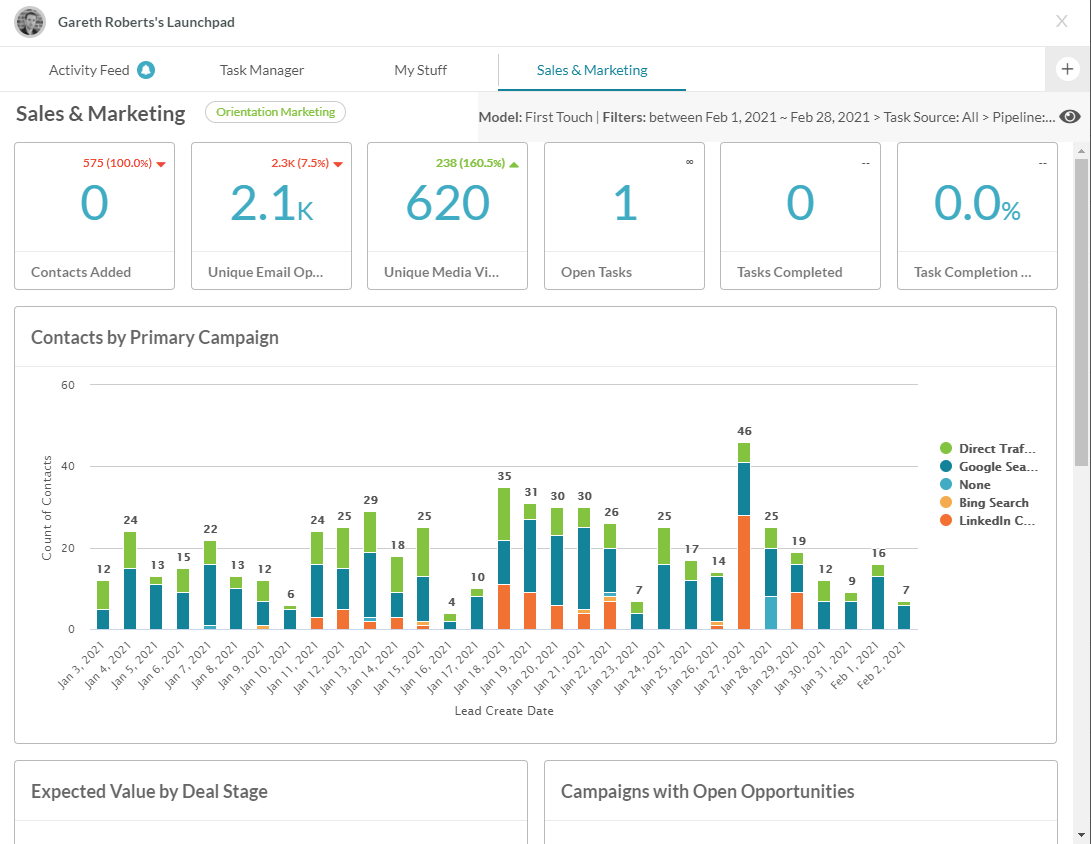SharpSpring Automations and Workflows
SharpSpring’s workflows and automation features with examples of tasks B2B marketers can automate.
As a SharpSpring partner, we help organisations in the pharmaceutical and related sectors build awareness and generate and nurture new leads via the SharpSpring marketing automation platform.
SharpSpring’s system makes intelligent marketing and sales follow-up possible via its software that integrates seamlessly with websites, CRM, social media and email.
For an overview of the system’s full marketing features, see here.
Subscribe for marketing insights via email
10 SHARPSPRING AUTOMATION FEATURES
SharpSpring has a range of automation features and capabilities within its system - this article will run through those SharpSpring’s key automations.
1. EMAIL MARKETING TASKS FOLLOWING FORM SUBMISSIONS
One of the reasons you will invest in a marketing automation system like SharpSpring is to generate leads via sign-up forms to then trigger email marketing activities. Email marketing tasks are the most common types of external workflows I see within SharpSpring instances. Normally, the form submission triggers a series of initial emails that then funnel contacts through to other branches, lists and workflows based on individual actions. The system builds on this basic feature with some other subtle touches. For example, if a lead submits a contact form after business hours, you can send an email - and not just a standard auto-responder - indicating the team will respond in the morning; standard automated emails can also be set to only send during business hours. Rules as such are important for the B2B campaigns that we normally manage and would be one of the few considerations for a simple (but important) workflow such as this when the only trigger is a form fill.
2. UPDATES TO CONTACT RECORDS WITHIN THE CRM
One of the biggest features in automated marketing systems is customer relationship management (CRM) and the ability to integrate with other marketing activities. Forms, emails and websites are the primary channels that are all connected within SharpSpring, and based on pre-determined triggers, tasks can be created between them and stored in the CRM. So, if a contact engages with an email or website page - also considered a trigger - that contact’s record within the CRM can be updated. Tags, notes, lead fields, lead owners and notifications can all be created/updated based on the more data and information is gathered on that contact - this is in addition to the life of the lead feature which stores all engagement by default.
3. SOCIAL MEDIA AUTOMATION
As stated by SharpSpring, automated social media marketing takes care of scheduling and publishing content as well as cross-posting, conversations and tracking. When you have content to post on multiple social media sites, the system can schedule and publish across multiple channels with no problem. That’s the easy bit. But it can do more. Frequently asked questions can be programmed into a basic chatbot to respond to general customer inquiries through messenger apps, for example. You can use this type of software to track how many website visitors found your site via your social media accounts. Automations based on social media activity often goes unforeseen - and I can understand why. It may seem creepy to be doing this off certain platforms. But take LinkedIn, for example, from a B2B perspective, which could easily be utilised within a workflow to serve further content to those interested in your company page.
4. BUILD (ADDITIONAL) LEAD SCORES INTO CAMPAIGNS
The system builds lead scores into contacts and contact records based on engagements by default, and users can choose whether to keep the standard scoring criteria set by SharpSpring or edit their own. However, each organisation conducts sales-based activities differently and different (sometimes ad hoc actions can warrant more of a score and show more intent) workflows can be set where obscure actions can increase or decrease scores based on known behaviours. A certain piece of content may carry more weight than another piece of content within the same format, and therefore, the system will need to be configured via a workflow to allocate that score. If someone visits an important page, such as a particular case study or technical sheet, it is likely that the contact is in an advanced stage of the buying process and warrants a higher lead score quicker.
5. AUTOMATED LIST BUILDING
“The money is in the list” is a phrase I heard a lot of during the boom days (if we’ll call it that) of email marketing around ten-or-so years ago. It’s a dated phrase, of course. But there is still some truth here; lists that are up-to-date and highly segmented perform far better than lists which are static and rarely updated and often house good leads and potential customers. Dynamic lists that automatically update as contacts meet the list’s criteria can be created and used as a base for these segments. Then, workflows can be created that move contacts to and from such lists when they have completed the desired action, who is interested in a specific set of products, comes from a specific location, has a lead score above “x” or visits pricing pages, for example. A common list workflow I like to launch is one where leads are managed based on their position within a traditional buyers journey. The three stages are awareness (cold), consideration (warm) and decision (hot) and the trigger for such list building/workflow is a change in lead score. Such lists provide a quick overview of the number of contacts within each stage as well as the opportunity to email the list (segment) content.
6. OPPORTUNITY-BASED WORKFLOWS
Opportunity-based workflows relate to contacts who have completed an action - such as filling a form requesting a callback or downloaded a product brochure - that then moves them on to become a qualified or warm lead to begin the sales cycle. Workflows can be set up so that, once a trigger is set, a new opportunity is created and added to one of the pre-determined pipeline stages. Lead owners, attributions, deadlines and other pipeline-based information can all we added automatically by a workflow once configured. Sales-based tasks as such need to be explored and configured within SharpSpring so that the burden of manual actions are taken away and you and your sales team so you can focus on the tasks that increase the chances of conversion, rather than spend time on administrative tasks for documentation.
7. TIME-BASED AUTOMATIONS
Time-based workflows allow you to automate many different processes. With a time-based workflow, you can set an action to occur when a user, visitor, or other party engages with your content in a specific way. Setting up an automated time-based workflow to take the place of having to manually respond to every engagement or interaction will save an untold amount of time, as do most of the workflows on this list. Time-based automations require DateTime fields - standard times that can be selected through SharpSpring's calendar date and time clock features, and are required should birthday/event emails be used. Rarely do I come across such automations within a B2B context, but they exist and can be used to help build a rapport with your contacts.
8. UPDATES AND NOTIFICATION WORKFLOWS
Possibly the simplest of the automated tasks that can be created within workflows as well as the most effective. Unfortunately, one of the most unused. Internal workflows that involve the employees of the organisation can be configured to notify people when certain actions are completed. Internal automation workflows can be triggered to send internal messages to marketing, sales and customer service teams and departments to nudge them to conduct a task or to keep them in the loop with certain activities. You can receive instant notifications via email and SMS whenever you make a sale, land a high-quality lead or successfully move a prospect along in their buyer’s journey, so you can move at the optimal time. Receiving actionable data to be able to respond accordingly – without even logging in to the marketing automation application could be the workflow your salespeople are missing. See, really powerful (and easy to set up).
9. INTEGRATIONS WORKFLOWS AND OPTIMISATIONS
Integrations with SharpSpring allows for the transfer of data between systems. Automations can then be set up to further edit/add data via workflows so that the data can be updated as new data sets are acquired to be used as desired. Actions, such as email jobs and list ads, can also be created once data is passed to and from systems. Automations can also be created on such third-party systems so that it receives new data from SharpSpring once it gets it. Third-party integrations can be set up in the marketing automation platform, leaving data transfers and messaging campaigns to operate automatically.
10. ANALYTICS AUTOMATIONS
Finally, and we’ll quote SharpSpring again on this one, the last type of marketing automation is analytics and reporting. As a form of internal marketing, this feature makes it easy for your marketing team to access statistics and results without having to spend hours combing through endless data points. Marketing analytics automation lets you track all sorts of campaigns, including email, social media, blog articles, ads and more. With email campaigns, you can easily see the delivery, open, click-through and bounce rate of every email sent. For social media, blogs and advertisements, you can view how well each campaign is performing and use that data to optimise future campaigns.
AUTOMATE WHERE POSSIBLE
This post looked at the types of tasks which can be automated via the creation of workflows; workflows that we and our clients use. On this website, there are tens of live workflows that trigger jobs within SharpSpring - some of those workflows are mentioned above. Don’t forget to check out some of the other SharpSpring articles within this series that will help you become more sophisticated with marketing automation and get the best out of the system. Should you like to set up a call to discuss SharpSpring or any of the points discussed within this post, please get in touch here.
For more on SharpSpring and email marketing in the pharmaceutical sectors, and how we can help, see our section on email and marketing automation.


